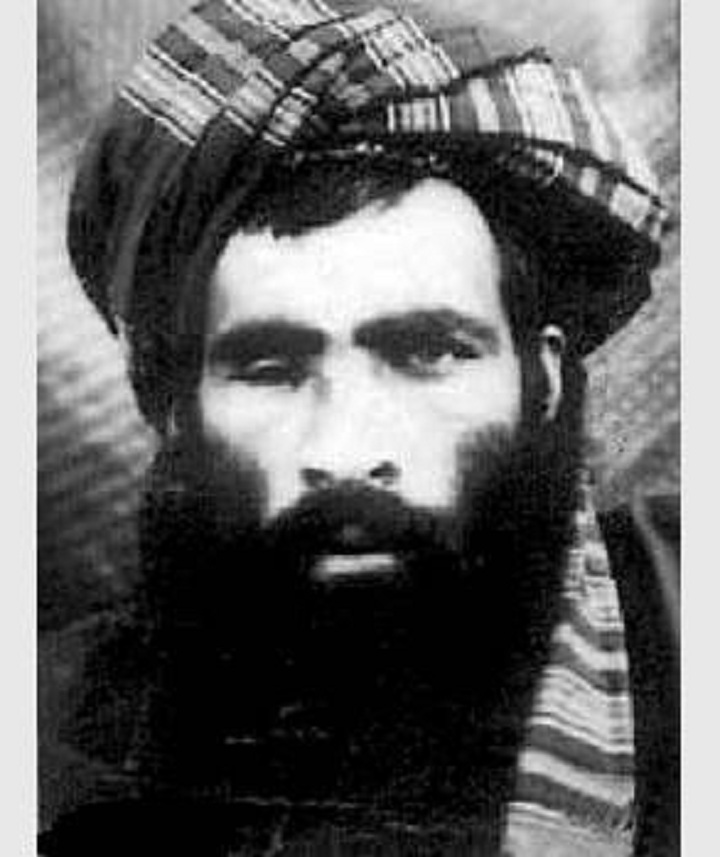ISLAMABAD – Pakistan released its highest-ranking Afghan Taliban prisoner on Saturday in an effort to jump-start Afghanistan’s struggling peace process, Pakistani officials said, but some doubt he will make much of a difference.

The Afghan government has long demanded that Pakistan free Mullah Abdul Ghani Baradar, the Taliban’s former deputy leader who was arrested in a joint raid with the CIA in the southern Pakistani city of Karachi in 2010.
The United States is also keen for the Afghan government to strike a peace deal with the Taliban before it withdraws most of its combat troops from Afghanistan by the end of 2014. But the U.S. pressured Pakistan not to release Baradar because of concerns he would return to the battlefield, officials said.
Baradar will remain in Pakistan after his release and will be provided with tight security, said Pakistani intelligence and security officials who confirmed that he was freed but did not provide details, including where he was held. He will be free to meet with anyone he chooses, they said, speaking on condition of anonymity because they were not authorized to talk to the media.
Pakistan’s Foreign Ministry announced earlier that Baradar would be released Saturday “to further facilitate the Afghan reconciliation process.”
Mohammad Ismail Qasimyar, a member of the council tasked by the Afghan government to negotiate with the Taliban, praised Baradar’s release, saying “we are very much hopeful that Mullah Baradar can play an important role in the peace process.”
Baradar, who is around 50 years old, was one of the founding members of the Taliban along with the group’s leader Mullah Omar. He served as a senior military leader and defence minister after the Taliban seized control of Afghanistan in 1996.
- L.A. wildfires: U.S. asks Canada for resources as provinces send aid
- Ex-FBI informant who fabricated bribery story about Biden, son gets 6 years in prison
- How will Trump impose tariffs on Canada and others? His options, explained
- Los Angeles wildfires: Alberta plans to send water bombers, other resources to California
Wakil Ahmad Muttawakil, who served as foreign minister when the Taliban ruled Afghanistan, also hailed Bardar’s release and cautioned Pakistan not to try to control his movements now that he is free.

Get daily National news
“They also have to allow him contact with Taliban leaders and for him to be useful for peace in Afghanistan,” Muttawakil told The Associated Press.
Not everyone agreed that Baradar’s release would contribute to peace, saying his long imprisonment had robbed him of both his influence and position in the Taliban.
“This is a very, very meagre step. It will not bring peace. It is just a show,” said Mohammad Daoud Sultanzai, an Afghan political commentator and talk show host. “He doesn’t have an importance among the Taliban leadership, or any other leadership that would be able to deliver anything with authority.”
Pakistan has released at least 33 Taliban prisoners over the last year at the Afghan government’s request in an attempt to boost peace negotiations between the insurgents and Kabul.
But there is no sign that the previous releases have helped peace talks, and some of the prisoners are believed to have returned to the fight against the Afghan government. The releases ended up causing friction with Kabul — and Washington — which were both frustrated that Pakistan was not monitoring the whereabouts and activities of the former inmates.
The U.S. asked Pakistan to keep Baradar under house arrest rather than set him free, said senior Pakistani and American officials, speaking on condition of anonymity because they were not authorized to talk to the media.
Pakistan refused the request, saying it would infuriate both the Afghan government and the Taliban, said the American official. The U.S. believes Baradar is one of the smartest members of the Taliban and is worried he could give the group a strategic leg-up in its battle against Afghan security forces if he rejoins the insurgency, the official said.
The circumstances surrounding Baradar’s arrest in Karachi were murky. Afghan officials said at the time that he was holding secret peace talks with Afghan President Hamid Karzai and accused Pakistan of arresting him to sabotage or gain control of the process. Both Baradar and Karzai are from the same tribe.
But American officials said the CIA was the driving force behind the arrest and Pakistani security forces who participated in the raid did not know they were detaining the Taliban’s deputy commander.
Pakistan is a key player in Afghan peace talks because of its historical ties to the Taliban. Islamabad helped the Taliban seize control of Afghanistan in 1996 and is widely believed to have maintained ties with the group, despite official denials.
But there is also significant distrust between the two, and Pakistan has arrested dozens of Taliban militants in the years following the U.S.-led invasion of Afghanistan in 2001 — possibly to hold as bargaining chips.
Pakistan has increasingly pushed for a peace settlement because it is worried that chaos in Afghanistan following the withdrawal of most U.S. combat troops by the end of 2014 could make it more difficult to fight its own domestic Taliban militants. It could also send a flood of new refugees into Pakistan.
The most recent attempt to push forward peace negotiations foundered in June in the Qatari capital of Doha. The Afghan president pulled the plug on the talks even before they began because he was angered that the group marked the opening of its Doha political office with the flag, anthem and symbols of the Islamic Emirate of Afghanistan — the group’s name when they ruled the country.
Another major hurdle to restarting talks is Washington’s reluctance to release five senior Taliban commanders being held at the prison in Guantanamo Bay, according to the American official.
_____
Associated Press writers Sebastian Abbot in Islamabad and Patrick Quinn and Rahim Faiez in Kabul contributed to this report.







Comments